May 21-23, 2025
The event will take place at the Graduate Hotel on the University of Minnesota Campus in Minneapolis.
- Invited session proposals deadline – 11/15/2024
- Invited session decision date – 12/15/2024
- Registration opening date – 12/15/2024
- Contributed abstract submissions open (includes 15-minute talk, speed talk, and poster presentation formats) – 12/18/202
- Contributed talk (15-minute and speed talk) submission deadline – 2/15/2025
- Contributed talk decision date – 3/1/2025
- Poster submission deadline – Rolling basis until capacity is reached
Early bird registration (December 15, 2024 — March 22, 2025)
- ASA SSGG member: $310
- ASA member: $330
- Non-ASA member: $385
- Student/postdoc: $110
- ASA SSGG member: $365
- ASA member: $385
- Non-ASA member: $440
- Student/postdoc: $165
Cancellation policy
| May 21, 2025 (Day 1) | 7:30-5:30 | Registration |
| 7:30-8:30 a.m. | Breakfast | |
| 8:30-9 a.m. | Opening Ceremony and SSGG Updates | |
| 9-10 a.m. | Keynote 1 | |
| 10-10:15 a.m. | Coffee & Tea Break | |
| 10:15-12 p.m. | Parallel Session I (6 sessions with 4–5 speakers per session): 4 invited + 1 contributed + 1 panel | |
| 12:10–13:30 p.m. | Lunch | |
| 13:40–15:25 p.m. | Parallel Session II (6 sessions with 4–5 speakers per session) : 5 invited + 1 contributed | |
| 15:30–15:45 p.m. | Afternoon Break | |
| 15:45–17:30 p.m. | Parallel Session III (6 sessions with 4–5 speakers per session) : 5 invited + 1 contributed | |
| 17:30-19:30 p.m. | Poster Session + Reception + Speed Talk |
| May 22, 2025 (Day 2) | 6:30-7:30 a.m. | Hiking/Jogging |
| 8-9 a.m. | Breakfast and registration | |
| 9-10 a.m. | Keynote 2 | |
| 10-10:15 a.m. | Coffee & Tea Break | |
| 10:15-12 p.m. | Parallel Session IV (6 sessions with 4–5 speakers per session): 4 invited + 1 contributed + 1 panel | |
| 12:10–13:30 p.m. | Lunch | |
| 13:40–15:25 p.m. | Parallel Session V (6 sessions with 4–5 speakers per session) : 5 invited + 1 contributed | |
| 15:30-15:45 p.m. | Afternoon Break | |
| 15:45-17:30 p.m. | Parallel Session VI (6 sessions with 4–5 speakers per session) : 5 invited + 1 contributed | |
| 18:00-20:30 p.m. | Banquet + Keynote 3 + Awards Ceremony |
| May 23, 2025 (Day 3) | 8-9 a.m. | Breakfast and registration |
| 9-10 a.m. | Special Invited Talk 4 | |
| 10-10:15 a.m. | Coffee & Tea Break | |
| 10:15-12 p.m. | Parallel Session VII (6 sessions with 4–5 speakers per session): 4 invited + 1 contributed + 1 panel | |
| 12:10–13:30 p.m. | Concluding remarks |
A block of affordable hotel rooms has been reserved at the conference venue (Graduate Hotel, 615 Washington Ave SE, Minneapolis, MN 55414). Booking is open now!
- Booking Link: STATGEN 2025
- Room Block Cutoff Date: 4/28/2025
- Guests can also call the hotel at (612) 379-8888, ask for reservations, and request the UM STATGEN 2025 room block
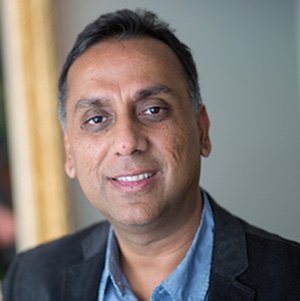 Dr. Nilanjan Chatterjee is a Bloomberg Distinguished Professor in the Department of Biostatistics, Bloomberg School of Public Health, and Department of Oncology School of Medicine at the Johns Hopkins University. Before joining Johns Hopkins, he led the Biostatistics Branch of the Division of Cancer Epidemiology and Genetics of the US National Cancer Institute during 2008-2015. He is known for foundational and methodological contributions to multiple areas of modern biomedical data science, including large-scale analysis of genetic associations, gene-environment interactions, and predictive model building by synthesis of information from various data sources. He has received numerous prestigious national and international awards, including the celebrated Committee of the Presidents of Statistical Societies (COPSS) President’s Award. He is an elected Fellow of the American Statistical Association and American Epidemiological Society. He serves on the scientific advisory committee of the Radiation Effect Research Foundation, Hiroshima, Japan and the Population and Prevention Research Committee of the foundation of Cancer Research UK.
Dr. Nilanjan Chatterjee is a Bloomberg Distinguished Professor in the Department of Biostatistics, Bloomberg School of Public Health, and Department of Oncology School of Medicine at the Johns Hopkins University. Before joining Johns Hopkins, he led the Biostatistics Branch of the Division of Cancer Epidemiology and Genetics of the US National Cancer Institute during 2008-2015. He is known for foundational and methodological contributions to multiple areas of modern biomedical data science, including large-scale analysis of genetic associations, gene-environment interactions, and predictive model building by synthesis of information from various data sources. He has received numerous prestigious national and international awards, including the celebrated Committee of the Presidents of Statistical Societies (COPSS) President’s Award. He is an elected Fellow of the American Statistical Association and American Epidemiological Society. He serves on the scientific advisory committee of the Radiation Effect Research Foundation, Hiroshima, Japan and the Population and Prevention Research Committee of the foundation of Cancer Research UK.
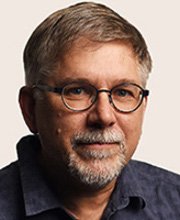 Dr. Robert Gentleman is the executive director of the Center for Computational Biomedicine at Harvard Medical School. He worked as a statistics professor at the University of Auckland in the mid-1990s, where he developed the R programming language alongside Ross Ihaka. In 2001, he started work on the Bioconductor project to promote the development of open-source tools for bioinformatics and computational biology. In 2009, Gentleman joined the Genentech biotechnology corporation, where he worked as a senior director in bioinformatics and computational biology. Gentleman joined personal genomics and biotechnology company 23andMe as vice president in April 2015, with the goal of bringing expertise on bioinformatics and computational drug discovery to the company. Recently he joined the Dana Farber Cancer Institute’s department of Data Science.
Dr. Robert Gentleman is the executive director of the Center for Computational Biomedicine at Harvard Medical School. He worked as a statistics professor at the University of Auckland in the mid-1990s, where he developed the R programming language alongside Ross Ihaka. In 2001, he started work on the Bioconductor project to promote the development of open-source tools for bioinformatics and computational biology. In 2009, Gentleman joined the Genentech biotechnology corporation, where he worked as a senior director in bioinformatics and computational biology. Gentleman joined personal genomics and biotechnology company 23andMe as vice president in April 2015, with the goal of bringing expertise on bioinformatics and computational drug discovery to the company. Recently he joined the Dana Farber Cancer Institute’s department of Data Science.
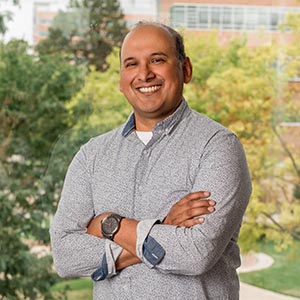
Dr. Debashis Ghosh is Professor in the Department of Biostatistics and Informatics at University of Colorado Anschutz Medical Campus. He previously served as Chair for 10 years. He was previously a faculty member at Penn State University and the University of Michigan. His research interests are in machine learning methods, causal inference and their application to a wide variety of problems in biostatistics and bioinformatics. He has over 290 publications in the scientific and statistical literature and has received many recognitions for his work, including awards/fellowships from
Harvard School of Public Health, the American Public Health Association, the American Statistical Association, and Institute of Mathematical Statistics. He previously served as the Co Editor of the journal Biometrics.
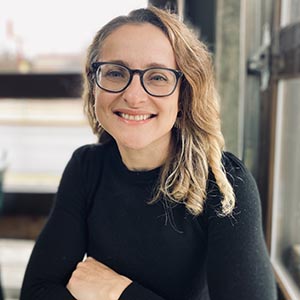
Dr. Sunduz Keles is Professor in the Department of Statistics and the Department of Biostatistics and Medical Informatics at the University of Wisconsin, Madison. She obtained her Ph.D. in Biostatistics from the University of California at Berkeley. Dr. Keles has more than twenty-five years of experience in developing statistical and computational methods for genomics, including serving as a principal investigator for the Encyclopedia of DNA Elements (ENCODE), and pioneering foundational statistical models for high dimensional and high throughput genomic sequencing data analysis. Dr. Keles is the recipient of UC Berkeley’s 2003 Jiann-Ping Hsu Award for Excellence and Scholarship and the David Byar Young Investigator award of the Biometrics Section of the American Statistical Association. She was awarded Romnes Faculty Fellowship and Vilas Associates award of the University of Wisconsin, Madison. She is the 2023 recipient of University of Wisconsin School of Medicine and Public Health Group on Women in Medicine and Science (GWIMS) Impact Award. Dr. Keles served as a member of the Genomics, Computation, and Technology (GCAT) study section of the National Institutes of Health (NIH) from 2016 to 2022, on the editorial board of the Journal of the American Statistical Association from 2012 to 2013, and as the International Mathematical Society (IMS) ENAR program chair in 2021 and the Joint Statistical Meetings (JSM) Program Chair of the Section on Statistics in Genomics and Genetics in 2021. Dr. Keles is an elected fellow of the American Statistical Association. She is currently a CZI Single Cell Biology Data Insights investigator and is serving on the NHGRI Advisory Council.
Invited Session Chairs: please ensure that each speaker in your session fills out this information form by February 15.
We now invite submissions for talks (15 minutes), speed talks (3–8 minutes), and poster presentations for STATGEN 2025. Please submit your talk, speed talk, or poster presentation using this form.
Submissions open December 20, 2024. The deadline for contributed talks (15-minute or speed) is February 15, 2025. After February 15, 2025, submissions will only be considered for poster presentations on a rolling basis until capacity is reached or March 15, 2025.
If you have any questions, feel free to contact the program committee:
We look forward to your contributions and to seeing you at STATGEN 2025!
The Twin Cities of Minneapolis and St. Paul is an ideal location for this conference. Minnesota is home to multiple institutions with active research and training programs in statistical genetics. Our central location within the continental US and top-rated MSP Airport means that the Twin Cities are easily, quickly, and relatively cheaply accessible by air. The proposed conference venue, on the University of Minnesota campus, is located only 10 miles from the airport and easily accessible by car or public transit. The surrounding neighborhoods offer affordable accommodations and a variety of attractions, from professional sports and vibrant music scenes to renowned restaurants and outdoor activities such as biking and exploring the Mississippi River.

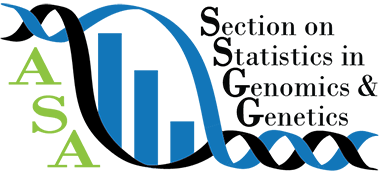

STATGEN 2025 is seeking additional conference sponsors! If your organization is interested in sponsoring the event, please reach out to statgen2025@umn.edu to discuss options.
Local Organizing Committee:
- Sandra Safo (co-Chair; Biostatistics and Health Data Science, University of Minnesota)
- Kelsey Grinde (co-Chair; Mathematics, Statistics, and Computer Science, Macalester College)
- Arslan Zaid (Genetics, Cell, and Developmental Biology, University of Minnesota)
- Aaron Molstad (Statistics, University of Minnesota)
- Brandon J Coombes (Quantitative Health Sciences, Mayo Clinic)
- Eric Lock (Biostatistics and Health Data Science, University of Minnesota)
- Tianzhong Yang (Biostatistics and Health Data Science, University of Minnesota)
Program Committee:
- Jingyi Jessica Li (Department of Biostatistics, University of California, Los Angeles)
- Peng Wei (Department of Biostatistics, University of Texas MD Anderson Cancer Center)
- Saonli Basu (Biostatistics and Health Data Science, University of Minnesota)
- Judong Shen (Biostatistics and Research Decision Sciences, Merck & Co., Inc.)
